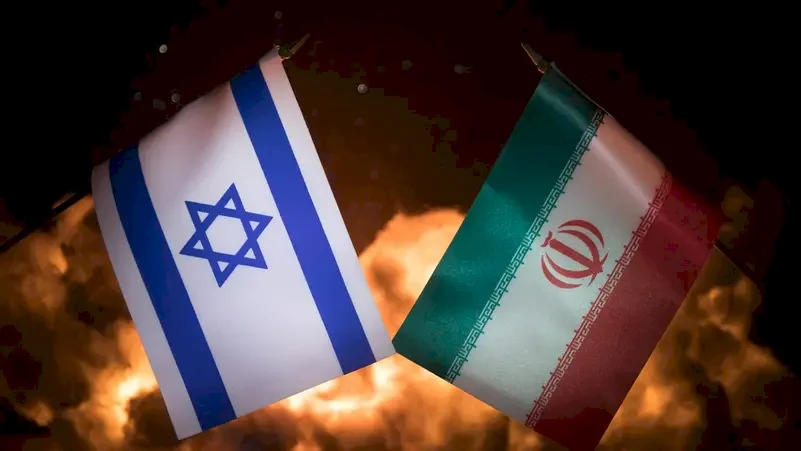
New York Times: The Conflict Between Israel and Iran Could Erupt at Any Moment
SadaNews - U.S. President Donald Trump insists that the strikes carried out by U.S. forces on Iran's nuclear facilities last June "eradicated" Tehran's uranium enrichment program, asserting that his country has succeeded in destroying what remains of its nuclear capabilities. However, officials and experts in the region view the picture as less clear—and indeed more dangerous—believing that the next confrontation between Israel and Iran is no longer a distant possibility but rather a matter of timing, according to a report from the American "New York Times."
Expired Agreement and Diplomatic Stalemate
The expiration of the nuclear agreement reached in 2015, which limited Iran's uranium enrichment, has brought the situation back to square one. U.S. sanctions have been reimposed, negotiations regarding the nuclear program have stalled, while Tehran claims that most of its facilities have been destroyed, and Israel asserts that Iran's stockpile of highly enriched uranium has been moved to secret locations. Experts say that Iran continues its activities at a new site known as "Mount Axe," refusing to allow international inspectors access. Thus, the country seems to be at the heart of a dangerous equation: no negotiations, no oversight, and no clarity regarding the size of its nuclear stockpile. This equation heightens concerns in the region that Israel may resort again to military force.
Iran Prepares While Israel Waits for Its Opportunity
In this context, Ali Fayyad, director of the Iran Project at the "International Crisis Group," points out that Tehran is preparing for a new round of conflict, stating that missile factories are operating around the clock, and that the leaders of the Revolutionary Guard aspire to "launch two thousand missiles at once to overwhelm Israeli defenses, not just 500 as happened last June."
Although there are no immediate indicators of an impending attack, security analyses in the region suggest that Israel considers its mission "incomplete" and that it could re-launch an attack as soon as it senses that Iran is nearing the crossing of a red line toward nuclear weapons.
The irony, according to the report, is that major Arab powers have strengthened their influence with Washington and President Trump, but at the same time work to maintain open channels of communication with Tehran. Snam Wakil, director of the Middle East Program at "Chatham House," clarifies that these countries "do not wish for a new war, but they recognize that Iran, despite its weakness, is still capable of destabilizing the region through its militias and proxies spread across Lebanon, Iraq, Yemen, and the Gulf."
American research centers indicate that this "relative weakness" of Iran might create an opportunity for new diplomacy, but it also makes Iran more prone to confrontation if it feels cornered. Susan Maloney from the "Brookings Institution" states that "a weaker Iran is easier to contain, but at the same time, it is more dangerous because it might undertake reckless steps out of desperation."
Khamenei's Messages.. and Rejection of Dialogue
In Tehran, the Iranian leadership appears to be clinging to a defiant rhetoric. The Supreme Leader Ali Khamenei stated on the anniversary of the storming of the U.S. embassy in 1979 that "American hostility is deeply rooted, and Washington accepts nothing but surrender," a message widely interpreted as a closure to any new negotiations with the Trump administration. Meanwhile, Foreign Minister Abbas Araghchi confirmed that his country rejects the impossible conditions put forth by Washington, but is willing to engage in indirect talks if Tehran is guaranteed an end to attacks, sanctions, and compensation for war damages, demands that the United States finds unrealistic.
According to the report, Iran is currently experiencing an internal debate between two camps: one calling for a political settlement and reaching an agreement with Washington to ease economic pressure, and the other seeing any negotiation with Trump as a waste of time, believing that confrontation with Israel is inevitable. However, both camps agree that the "next round" of conflict is imminent, and that Iran seeks to make this confrontation "different" to restore deterrence balance in the region.
Conversely, Israelis understand that the Iranian nuclear program has been damaged, but it has not been destroyed, and any laxity could grant Tehran the opportunity to rebuild. Therefore, Israel appears determined to take military action if necessary, especially with clear political support from the Trump administration, which views its confrontation with Iran as an extension of its battle against "the Iranian threat in Gaza, Lebanon, and Yemen."

Video: American Refueling Aircraft Arrive in Israel

The Cabinet Warns Against Unjustified Delays in Delivering Basic Living Supplies to Gaza

Palestine Comments on Kuwait-Iraq Crisis and Calls for Resolution

Israel Threatens Lebanon Amid Conflicting Hezbollah Positions on Iran

Referral of 8 defendants to the Corruption Crimes Court in a case of encroachment on state...

Public Prosecution Refers 8 Defendants to Corruption Crimes Court for Crimes Against State...

Iran: Military Helicopter Crash Claims 4 Lives

